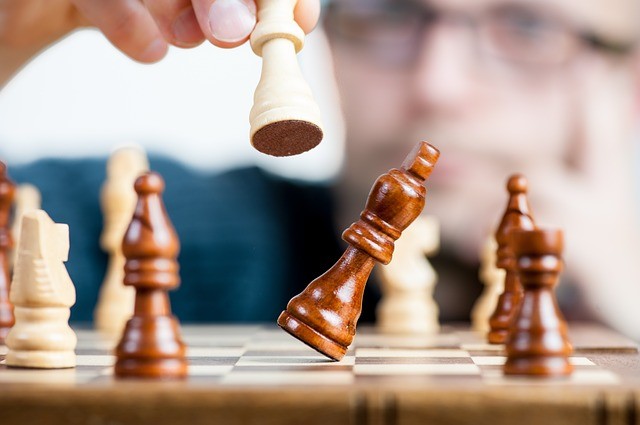Early Recovery – Strategies to Push Fast Forward
Early recovery …
… is hard as hell. Anyone who says otherwise is lying. It takes guts, commitment, and bravery to remove alcohol from your life and relearn how to live as a sober person.
It does get much easier the more time that goes on not drinking… But there’s no getting away from the fact that at first it is a huge adjustment that requires focus and hard work. Here are some tried and true techniques and key strategies that might make the early stages of sobriety easier for you. They certainly worked for me.
Strategies for Early Recovery – Urge Surfing
Urge Surfing is a really great technique for dealing with addictive cravings. Particularly in early recovery. According to addiction experts, urges for substances never usually last longer than 30 minutes. If you are able to step aside and mindfully watch the urge from a distance (surf it like a wave) it will pass without developing into a craving. What usually happens with we addicts is that we feel the urge and let it turn into an internal struggle. (i.e. We start up the mind chatter. “I wish I could drink. I deserve a drink, everyone else is drinking I should be able to. Just one can’t hurt, if only I could have a drink” etc. etc.).
This struggle allows the urge to turn into a full blown craving and they are bloody hard to beat. So the trick is to surf the urge. And not let an internal struggle kick in to have it develop into a craving. Urges do not have to be acted on. Fighting the urge feeds it. Just let the urge be. Ride it out – don’t feed it or fight it or judge it. Just acknowledge it, notice it, and watch it with open and warm curiosity… And it should pass within 30 mins.
Push Fast Forward
When you are romanticizing about alcohol – which you will do in early recovery because your addiction will be desperate to keep you drinking – play the Push Fast Forward game. This involves thinking past that first romantic image of booze. Instead, focusing on the reality of what it will actually end up looking like. So for example your romantic image might see you pouring a lovely glass of glistening chardonnay at 5 PM with the sun streaming in the kitchen windows. In this romantic image you’re happy and relaxed and deserve this lovely liquid release.
But, if you were to Push Fast Forward you’d see yourself at 10 PM. With a full bottle of wine in you (because it’s impossible to stop at one glass). Slumped on the sofa, heavy and numb, about to fall into bed to sleep like crap for six hours before waking up hungover, guilty and miserable. Or your romantic image might have you accepting a glass of bubbles at a wedding reception feeling great and surrounded by love. But if you were to Push Fast Forward you’d see yourself drunk and emotional later in the evening in floods of tears. Having lost your shoes and wailing over the state of your life to a random stranger. Remember, when you think romantic thoughts about booze the reality will usually end up being far from the glossy image. Push Fast Forward Button and don’t let yourself forget why you’re quitting.
 Challenge and Confront your Hardwired Beliefs – Early Recovery
Challenge and Confront your Hardwired Beliefs – Early Recovery
Every time a sad thought pops into your head about missing alcohol or its supposedly beneficial qualities, make sure you challenge and confront that thought. For example, if you think to yourself “I’ll never enjoy a romantic date with my partner if I can’t share a cocktail with them”, recognize the thought, challenge and confront it. Then turn it around by thinking, “Of course I can enjoy a wonderful romantic moment with my partner without alcohol. Why does booze have all the power to make that moment special? It doesn’t! It’s special just because of what it is.”
Or if you notice yourself thinking, “I’ll never have fun at a party again if I can’t drink,” notice the thought. Then turn it around by telling yourself; “A party is fun for a whole bunch of reasons other than what’s in my glass.” Then make a mental list of exactly what those reasons are (more on this below). Do this again and again and again. Recognize the old thoughts, challenge them and turn them around. Slowly over time, as early recovery moves to long-term, you’ll genuinely change your thinking, you’ll start to see the truth that we’ve been conditioned to believe all of these notions about booze that simply aren’t true, and you’ll realize that life can be enjoyed to the fullest without ever touching that liquid drug.
Make Clear Mental Lists
It’s important when you’re busy telling yourself that an event or experience will be okay without alcohol, that you quickly work to identify all of the positive aspects that will actually make it special. Literally do this – make a clear mental list in your head of all the good and positive things that are inherent in the upcoming event or experience. For example, you might think about a party; “I’m going to be surrounded by my good friends or relatives. Relishing the fact that I’m not at work. I’m going to be celebrating my husband’s promotion. I’m going to enjoy the delicious food.” Or you might think about a gathering at the pub, “This is about bonding with the parents of our son’s friends, this is about trying the new menu at our local venue, this is about getting our family out of the house on a wet Sunday afternoon.” There are always many things to focus on that aren’t about what liquid is in your glass. In early recovery and beyond, don’t give alcohol all the power to make an event or experience special.
Hopefully if you consciously work some of these techniques it might make early recovery a bit more manageable for you. And always remember – it does take a big adjustment from living boozily to living sober.. but over time you will come to relish your alcohol-free status and wonder why you gave drinking so much time in your life.


 Challenge and Confront your Hardwired Beliefs – Early Recovery
Challenge and Confront your Hardwired Beliefs – Early Recovery